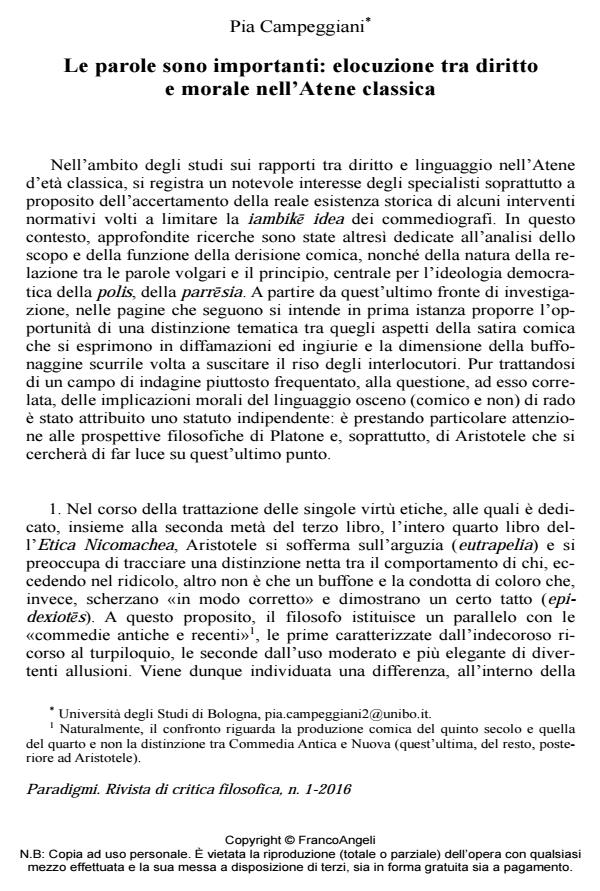Words matter: elocution, law and morals in classical Athens
Journal title PARADIGMI
Author/s Pia Campeggiani
Publishing Year 2016 Issue 2016/1
Language Italian Pages 11 P. 39-49 File size 173 KB
DOI 10.3280/PARA2016-001004
DOI is like a bar code for intellectual property: to have more infomation
click here
Below, you can see the article first page
If you want to buy this article in PDF format, you can do it, following the instructions to buy download credits

FrancoAngeli is member of Publishers International Linking Association, Inc (PILA), a not-for-profit association which run the CrossRef service enabling links to and from online scholarly content.
The author deals with the distinction, made by IV century B.C. Greek philosophers, between obscene language meant to defame individuals on a personal basis and vulgar buffoonery purely intended to make people laugh. It is suggested that whereas Athenian law just sanctioned defamation and insult, the issue of obscenity and indecency was interesting in itself to ethical and political thinkers.
Keywords: Aristotle, law, morals, obscene language, parrēsia, Plato.
Pia Campeggiani, Le parole sono importanti: elocuzione tra diritto e morale nell’Atene classica in "PARADIGMI" 1/2016, pp 39-49, DOI: 10.3280/PARA2016-001004